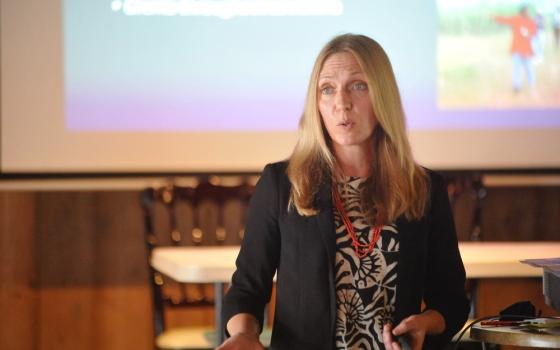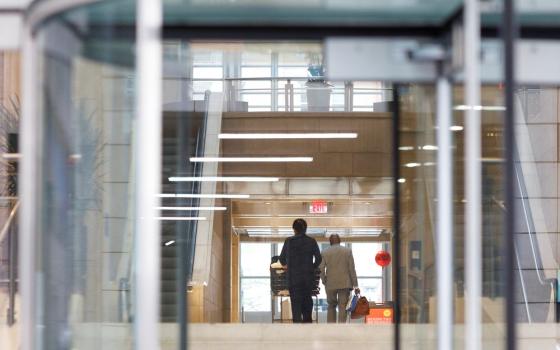Politics is often just talk, but at the end of the day it is the only way we produce and fund policy.
Immigration reform in this country has been held hostage to a number of other dynamics that go with politics and also start with the letter p: paralysis, posturing and polarization.
As the mid-term congressional elections approach, no one who watches TV can escape the barrage of commercials that play on voter dissatisfaction with the status quo, raw fear of a deepening recession, and the us-and-them depiction of every issue. Hopes for progress on immigration reform are in the swirl of other questions coming before voters, with jobs and the economy number one on everyone’s mind.
The church’s role can seem like just more talk, except that conscience is at stake and millions of people who vote also attend church.
 |
Join us at Celebration's Conference on Effective Liturgy: A Light to the Nations: Comprehensive Immigration Reform and the Church’s Global Commitment to the Poor. |
While some critics accuse church people of being naïve, it is just as naïve to think that religion cannot move social change. The civil rights movement was both legal and theological, with preachers like Dr. Martin Luther King, Jr. leading the way. A generation ago, churches helped inspire a Sanctuary movement to protect people fleeing from violence in their home countries.
The church has a pastoral responsibility to form its members in the faith. Organizations and grassroots activism, religious communities, diocesan offices and parish-based groups are part of the process that builds community, advocates fairness, provides basic services to the needy.
The churches also model the value of dialogue, reconciliation and collaboration. Many Sunday assemblies bring all sides of the immigration debate to the same altar to rehearse a Communion that is not always here the rest of the week but is a work in progress.

Progress toward that goal requires that all parties and interests be at the table. Only in honest dialogue are disinformation and propaganda unmasked and dispelled. Policy is the fruit of listening and compromise, respect and balance, justice and love. 
The church has a strong voice and a well articulated body of teaching on immigration. Bishop Ricardo Ramirez of the diocese of Las Cruces has been a shepherd at the border, a celebrant at Masses where the assembly was divided by INS fences and watchtowers.
The body of Christ is one, and to celebrate Eucharist without borders is a prophetic witness of things to come and a commitment to make this happen by working for immigration reform.
Fr. Groody and Bishop Ramirez will be with us Jan. 12-14, 2011, in San Antonio at the Celebration Conference on Effective Liturgy, “A Light to the Nations: Comprehensive Immigration Reform and the Church’s Global Commitment to the Poor.”
For more information about the conference and to register, visit our Web site at: www.CelebrationPublications.org/conference.
Please join us. The issues are critical and the timing couldn’t be better.



